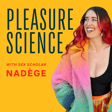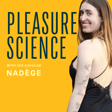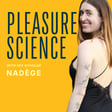
What's the Heterosexual Timeline? (How I realized I'm gay!)
Have you ever questioned the romantic milestones society tells us we should follow?
The "Heterosexual Timeline"—also known as the Relationship Escalator—is something you’ve probably never heard of, and yet it is the thing telling you what it means to be successful in love.
This unspoken timeline is the reason why most of us date the way we do, it’s why we assume that if you’re in love you should get married, and that’s just the tip of the iceberg.
At one point we have to ask ourselves, what if the ways we’ve learned how to love has nothing to do with our desires, needs, or our identity?
In this week’s episode, Nadège shares her personal coming-out story and explores how queer people have felt freer to make their own rules in relationships (and why this is a mentality EVERYONE should have!)
This episode will change the way you think about sex, love, and relationships.
Listen now and start creating your own timeline for love!
Show Notes
Pleasure Science Courses - Use pleasuresciencepod at checkout to receive 10% off!
WEB • www.pleasurescience.com
BLOG • Pleasure Science on Medium
@PleasureScience on Instagram, TikTok, and YouTube
Episode website: https://pleasurescience.com/s1e11-my-coming-out-story
More information about the relationship escalator


